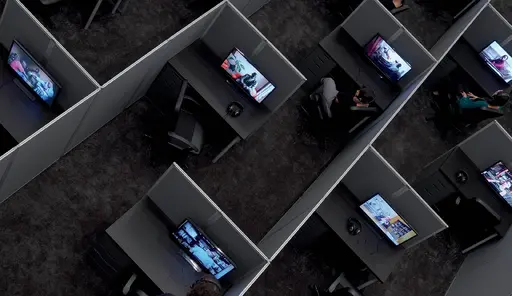Artists working within and among various fields of knowledge often focus on information, stories, alternative visions, or events that are not privileged in the dominant discourses of politics, economics, or history. They give this “nonknowledge,” which is “unclaimed” or repressed, a new life in the context of art in works that make use of intricate narratives and complex image composition. Knowing and unknowing are transformed into an artistic object or activity. Yet artist’s diverse methods in dealing with (non)knowledge do not amount to a simple “visual representation” or clarification of the unknown. Instead, artists themselves often work in a space between rationalization and intuition, planning and contingency, exposure and concealment. As philosopher Jacques Rancière has noted, “[…] artistic phenomena are identified by their adherence to a specific regime of the sensible, which is extricated from its ordinary connections and is inhabited by a heterogeneous power, the power of a form of thought that has become foreign to itself: a product identical with something not produced, knowledge transformed into non-knowledge, logos identical with pathos, the intention of the unintentional, etc.”
In their diversity and heterogeneity, these forms of “knowledge/non-knowledge” retain their critical potential and alternative content. Unclaimed knowledge exerts its specific power because of its ambiguity or indecisiveness and not, as in existing knowledge systems, because of its authoritative “truth.” Contemporary art works, both visual and non-retinal (Duchamp) involve the viewer’s active engagement in terms of both form and content. How can this play of knowledge and nonknowledge be circulated and seek an audience? Are contemporary art museums and galleries hospitable spaces for this kind of knowledge to be shared?
Program
Unclaimed Knowledge explores how marginalized knowledge is shaped into new forms (artistic knowledge, non-knowledge) through contemporary art practices, and looks at the particular role of the “visual” in these practices.
14.00 hrs
Discussion group
16.00 hrs
Lectures by and discussion with
Sven Lütticken, art critic and art historian, Amsterdam
Eva Meyer & Eran Schaerf, philosopher and artist, Berlin
19.00 hrs
Break (with optional light meal)
20.00 hrs
Performance by artist Claire Harvey and screening of video documentation of a performance by choreographer Ivana Müller.
